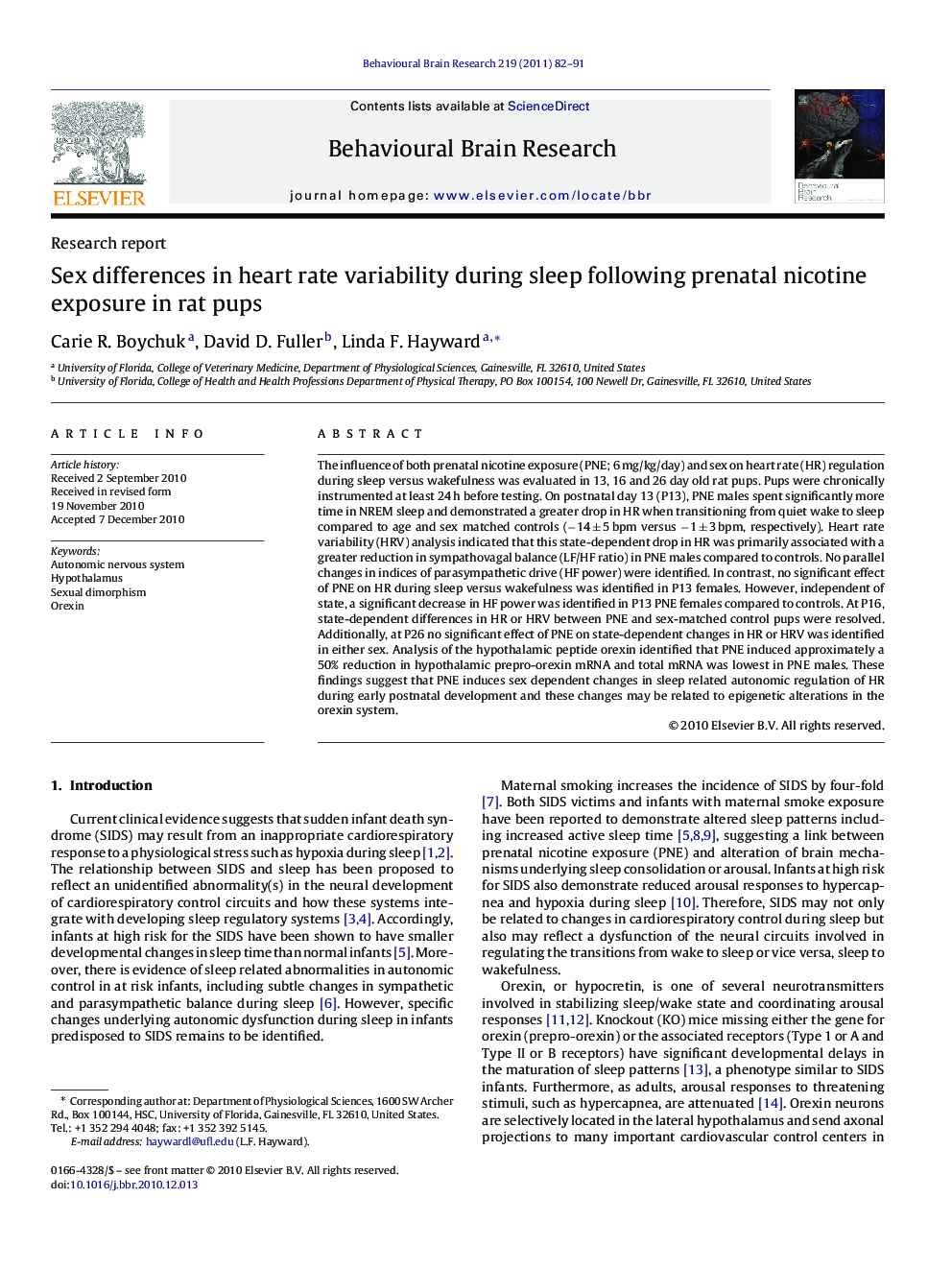| Article ID | Journal | Published Year | Pages | File Type |
|---|---|---|---|---|
| 6259840 | Behavioural Brain Research | 2011 | 10 Pages |
The influence of both prenatal nicotine exposure (PNE; 6 mg/kg/day) and sex on heart rate (HR) regulation during sleep versus wakefulness was evaluated in 13, 16 and 26 day old rat pups. Pups were chronically instrumented at least 24 h before testing. On postnatal day 13 (P13), PNE males spent significantly more time in NREM sleep and demonstrated a greater drop in HR when transitioning from quiet wake to sleep compared to age and sex matched controls (â14 ± 5 bpm versus â1 ± 3 bpm, respectively). Heart rate variability (HRV) analysis indicated that this state-dependent drop in HR was primarily associated with a greater reduction in sympathovagal balance (LF/HF ratio) in PNE males compared to controls. No parallel changes in indices of parasympathetic drive (HF power) were identified. In contrast, no significant effect of PNE on HR during sleep versus wakefulness was identified in P13 females. However, independent of state, a significant decrease in HF power was identified in P13 PNE females compared to controls. At P16, state-dependent differences in HR or HRV between PNE and sex-matched control pups were resolved. Additionally, at P26 no significant effect of PNE on state-dependent changes in HR or HRV was identified in either sex. Analysis of the hypothalamic peptide orexin identified that PNE induced approximately a 50% reduction in hypothalamic prepro-orexin mRNA and total mRNA was lowest in PNE males. These findings suggest that PNE induces sex dependent changes in sleep related autonomic regulation of HR during early postnatal development and these changes may be related to epigenetic alterations in the orexin system.
Research highlightsⶠSignificantly greater drops in heart rate during sleep were identified at P13 in prenatal nicotine exposed males but not females at P13. ⶠHeart rate variability analysis suggested the sleep-related changes heart rate in prenatal nicotine exposed males resulted from a reduction in symaptho-vagal balance. ⶠEarly disturbances in autonomic regulation during sleep was paralleled by indicators of epigenetic changes in hypothalamic orexin levels.
